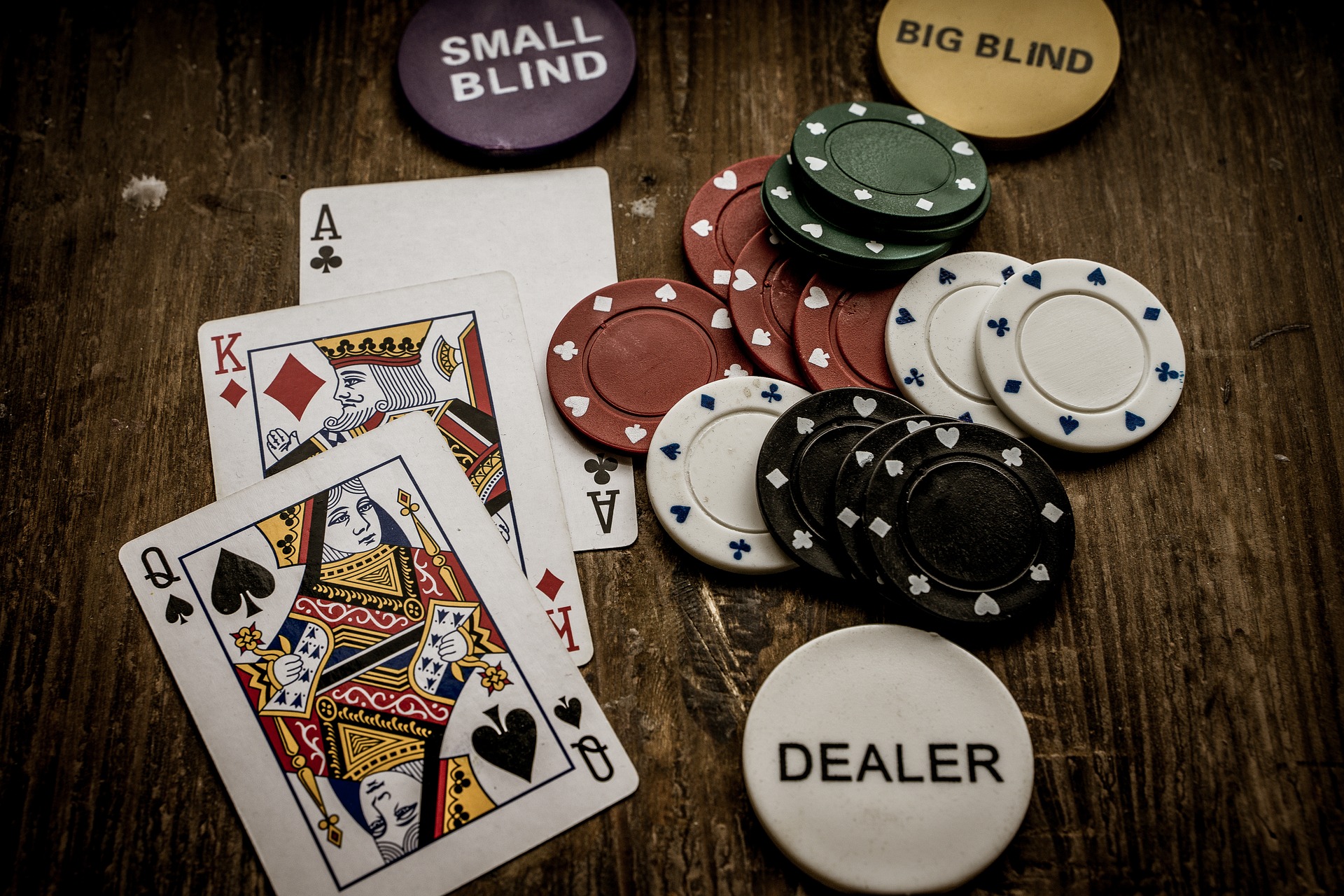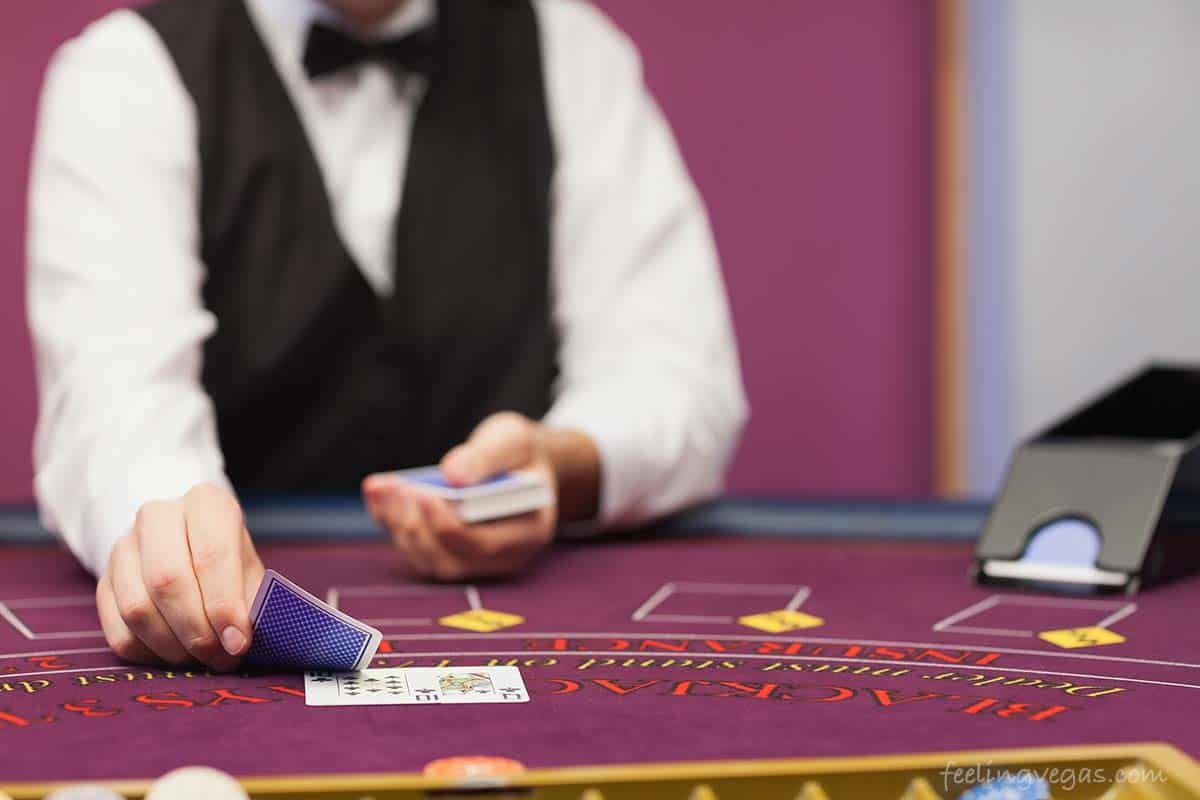Poker Dealer Salary With Tips
Oct 30, 2020 In California, the average base pay for poker dealers is $10 per hour or up to $38,122 per year. Top 4 Poker Dealer Salaries in Las Vegas: Wynn Resorts $60k – $100k (including tips) Caesars Entertainment $54k – $58k. Most casinos offer 24-hour gaming, so dealers can work any shift. Time-off is usually easy to get, and an early-out to accommodate an emergency is often available. A dealer's pay is based heavily on tips. At a go for your own casino, dealers keep their own tips and have a huge impact on how much they earn. The harder they work at being. Mar 13, 2018 This means that 50 percent of dealers made more than $19,290, and 50 percent made less. However, as PayScale.com notes, dealers can also earn money from tips. As a result, the take-home income of poker dealers depends on where the dealer works and her overall job performance. When you gain some experience, you will be paid about ten dollars per hour. According to the statistics, casino dealers receive 14,700 dollars a year. However, they frequently get tips. Taking into account this, casino card dealer salary with tips might increase up to sixty thousand dollars.
The amount that you choose to tip the dealer can have a pretty big impact on your bottom line, especially in small stakes games. If you're playing in a $1/$2 no-limit hold'em game and tipping five dollars or more per hand, you're probably going to be wiping out any profit from that game.
In a live $1/$2 game, a reasonable win rate for a skilled player might be $20 an hour. At a tipping rate of five dollars or more a hand, you might be tipping out $10 to $15 or more per hour of play, which is eliminating almost all of your profit. It is however in the best interest of the players that dealers make reasonable wages since we want the good dealers to have an incentive to stick around and keep dealing.
Competent dealers might be able to deal out 30 to 35 hands per hour in an average live NL game. If they're getting tipped one dollar per hand, they would be making $30 or $35 in tips per hour in addition to any salary. If you're playing those smaller stakes live games, tipping one dollar for every hand won is completely standard tipping protocol.
For those who would prefer to tip higher amounts, two dollars is generous. However, any tip of five dollars or more is almost certainly wiping out the vast majority of any profit that can be expected in a low stakes game.
To really see the effects of this to your own bottom line, start tracking all the money that you spend at a casino or a card room. Write down all the tips for a few sessions and see for yourself how big of an impact managing tipping amounts can make.
In general, I'm very pro‑dealer and there are a few things you can do to support your dealers in addition to tipping appropriate amounts.
Make it a point to keep the game moving quickly when you are at the poker table. Look for ways to help the dealer keep the game moving quickly, such as helping move the button in between hands. Just be sure to always tell the dealer you did this, so that the button doesn't get double-moved.
Little gestures like this help dealers more than you think. They will permit them to deal more hands and thus earn more tips per hour. You also benefit because more hands per hour means an increased hourly win rate.
This should go without saying, but you should also always be respectful to the dealer. Don't blame the dealer or berate him or her if you lose a pot — it is not the dealer's fault!
Think for a second about how this idea is so counterintuitive. Imagine you go to the mailbox one day and receive a letter with bad news, such as a unexpected bill. Would you blame this on the mailman? Of course you wouldn't. The people delivering your mail have no control of what type of mail you get each day — they only deliver based on the stops on their route. Similarly, it doesn't make sense for you to blame the dealer for losing a poker hand.
You also should never chastise dealers if they make a mistake as it will almost always make the situation worse. Everybody makes mistakes, including dealers. When a player berates a dealer, it will often make the dealer uncomfortable and prone to making even more mistakes.
If you see a mistake at the table, it is well within your right to point it out, but don't reprimand the dealer. Doing so will only slow down the game and create a poor atmosphere for recreational players.
In a very high stakes games, the average tip might increase to up to five dollars a hand, but most players will not tip much higher than that. This is because really good poker players are aware of the impact tipping makes to their bottom line.
Once last critical point to note is that you should not vary tip size based on the size of the pot won. However, it is often okay to vary the size of the tips based on the skill of the dealer. Good dealers might get tipped a little bit more in a hand, even though the size of the pot won was smaller. This type of reward is key to incentivizing good dealers to stick around.
LearnWPT is a poker training site dedicated to transforming the poker games of rank beginners, skilled amateurs, and aspiring professionals. Offering both Live Workshops and Online Training, is a one-stop shop for poker education, designed to provide all the tools a player needs to become a winner. Visit LearnWPT.com today and get 2 Free Strategy Episodes that will immediately impact how you play. LearnWPT.com - Think Like a Pro!
Tags
live pokercash game strategybankroll managementtippingetiquetterulesno-limit hold’emNick BingerRelated Players
Nick Binger
Do you love the casino scene?
Does being a casino dealer seem like the perfect blend of glamour, excitement, and fun?
At first glance, being a dealer at a casino might seem like the perfect job. After all, you probably already enjoy the games you’ll be playing. And you will be getting paid to play them.
You don’t even have to risk losing any money while you play. The casino is banking all the action.
As a casino dealer, the amount you win for the house has no bearing on your pay, though. You get an hourly wage plus tips.
Compared to some jobs, being a casino dealer might be a great deal. As casino gambling continues to grow across the nation, more jobs become available, and fewer potential employees are out there to fill those jobs. This means wages are climbing, too.
This post examines how much you can expect to make as a casino dealer, tips and all.
What Is the Average Wage for a Casino Dealer?
Your average wage as a casino dealer isn’t impressive at all. It’s a service industry, so when you calculate how much you’ll make, you need to take the same kind of mindset that waitresses and bartenders take:
How much money you make is based more on tips than on your hourly wage.
And the better you serve your customers, the more they’ll tip.

In other words, if you’re not a people person, becoming a casino dealer might not be a great idea.
The hourly wages for casino dealers don’t vary based on the game, either. Blackjack dealers make the same kind of money as baccarat dealers, who make the same kind of money as poker dealers or roulette dealers (or croupiers, as they’re called).
The starting pay for an average casino dealer is between $8 and $10 per hour. Some of that is based on experience, too.
If you’re able to get 40 hours a week, which is unusual, you’re looking at $16,000 to $20,000 per year. Most casino dealers, especially starting out, don’t get 40 hours a week, though.
That’s barely enough to pay the rent if you have a roommate and live in a cheap apartment.
Depending on the casino and the stakes of the games you’re dealing, you can expect to make anywhere from $15 per hour in tips to $50 per hour in tips, on average.
That $50 per hour figure, by the way, is an outlier statistic. This assumes you’re working at a high-end casino dealing the higher-limit casino games to the high rollers.
Even then, some high rollers don’t tip — or if they tip, they don’t tip well at all.
Poker dealers make the most money from tips on the most consistent basis, but a lot of this depends on people skills. In some casinos, the dealers are required to pool their tips.
I once played at a casino in Las Vegas with an older poker dealer named Boris. He got mad at me for saying the words “Carpe diem” at the table. He said that I was only allowed to speak English at the table.
Being a friendly guy, I smiled and explained to everyone at the table that the phrase is Latin for “seize the day.”
Boris didn’t think that was helpful, either. He was surly and rude.
As a result, I didn’t tip him.
I shared the story with a professional poker player friend of mine, and he told me that he would have raised hell with the cardroom manager until Boris had been fired.
And the thing is… I don’t mind a little correction. In fact, I’m a humble guy. Had he been reasonably friendly and polite about it, I would have continued to tip him. So it goes.
Also, just because you’re dealing a higher-stakes poker game doesn’t mean you’ll make more in tips. Some of the high-rolling poker players are notorious cheapskates. If you’re dealing high-roller blackjack, craps, or roulette, you’ll do a lot better than if you’re dealing high-limit hold’em.
According to Glassdoor, the average wages for dealers and related jobs are all over the place. They suggest that the average dealer makes $40,000 a year. They also suggest that an average poker dealer only makes $20,000 a year.
Other related jobs include the floor supervisor, with an average salary of $53,000 a year, a casino host, with an average salary of $35,000 a year, and a casino shift manager, with an average salary of $27,000 a year.
The site also lists salaries by company, and it looks like Caesars is the best place to be a dealer, with a salary of $42,000.

Indeed.com has more survey results and suggests an average of $15/hour, which equates to $30,000 a year. They had a listing for a dealer position in Black Hawk, Colorado, where the starting pay was $38/hour. That’s $76,000 a year.

ZipRecruiter suggests that top dealers make $400,000 a year, but I can’t imagine that’s accurate. The rest of their averages are in line with what I saw on the other sites mentioned.
The Perks and Drawbacks of Being a Casino Dealer as a Career
If you know anything about the service business, you probably know that dealing with the customers can be the biggest perk and the biggest drawback to your job. This is especially true in the casino business, though, because emotions tend to be amped up when money is on the line.

You’ll probably spend a lot of time on your feet if you’re dealing table games in the casino. If you’re dealing poker in the cardroom, you’ll probably need to bring a pillow for some extra cushioning at your chair.
One of the other drawbacks of being a casino dealer is that it turns what used to be a leisure activity into a work activity. Playing blackjack is great when you get to do it a couple of times a year for a few hours at a time.
But after dealing blackjack for 30 hours a week for six weeks straight, it becomes drudgery.
In most casinos, smoking is still allowed. That might or might not bother you. I’ve spent enough time in bars and AA meetings that cigarette smoke doesn’t bother me at all, but I’m not like most people.
One of the perks of dealing casino games is that it doesn’t require a degree. You can go to a vocational school to become a dealer, though, but the time and financial commitments are smaller than with other careers. You can usually be qualified to be a casino dealer after a couple of months and an investment of $1,000.
If you’re a night owl, or if you’re looking for a second job — we used to call it “moonlighting” — casino dealing might be perfect for you. After all, most casinos are open 24/7. And guess which shifts are the hardest ones for the managers to cover.
Most casinos are owned by large companies with human resources departments. This means that you’ll probably be eligible for a benefits package. These can include health insurance and retirement benefits, as well as paid time off.
Breaks are longer for casino dealers than you’ll see at other jobs. At most casinos, you work for 90 minutes and then take a 30-minute break. During an eight-hour shift, you get a total of two hours of break time.

If you like having stories to tell, being a casino dealer puts you in a position to have lots of anecdotes. Heck, I have quite a reputation as a raconteur just from the stories I have to tell by being a player. And believe me, I haven’t spent THAT much time gambling in casinos — not compared to someone who deals for a living, anyway.
What Are Your Job Responsibilities as a Casino Dealer?
Poker Dealer Salary With Tips 1x2
Think of the dealer as the host for a specific game. The dealer shuffles and deals the cards, or spins the roulette wheel, or directs the action at the craps table. The dealer also trades chips for money.
If you’re a poker dealer, you’re responsible for collecting the rake. It’s your job to make sure the players post their blinds.
Casino Dealer Salary Plus Tips
If you’re dealing a casino game, you collect the players’ losses and pay out their winnings in chips.
It’s traditional to start your career dealing blackjack because that’s the most popular table game.
But in Europe, it’s more likely that you’ll start as a croupier — that’s the fancy name for the dealer running the roulette game.
The dice table is the toughest table game to be a dealer. Even after writing about craps for years, I still have to look things up. The action is fast, there are lots of bets on the table, and there’s just a lot to keep up with. Craps is the last game most dealers learn.
You’re responsible for maintaining your own gambling license, too. It’s similar to having a driver’s license if you’re going to drive for a company or a food handler’s permit if you’re going to cook for people.
If you have lousy credit and/or a criminal record, you might run into trouble getting your license.
By the way, I have a lady friend who dealt blackjack for years. She’s clueless when it comes to basic strategy. You’re not required to learn the correct strategies for the games you deal.
My advice to prospective dealers is to avoid giving advice to players. That’s a no-win situation because the players are going to lose their money in the long run because of the nature of the games. If they followed your advice, they’ll just blame you for this.
Who needs that kind of headache?
Conclusion
If you like people, enjoy casino games, and don’t mind cigarette smoke, becoming a casino dealer might be the career for you. You don’t get to keep the money the players lose, but they’ll often tip you when they’re winning, so you’ll get to root for them.
You’ll make at least $15,000 a year dealing casino games, but you might make as much as $100,000 a year. I’ve seen reports of dealers who made more, but I’m skeptical, and you should be, too.
Please enable JavaScript to view the comments powered by Disqus.